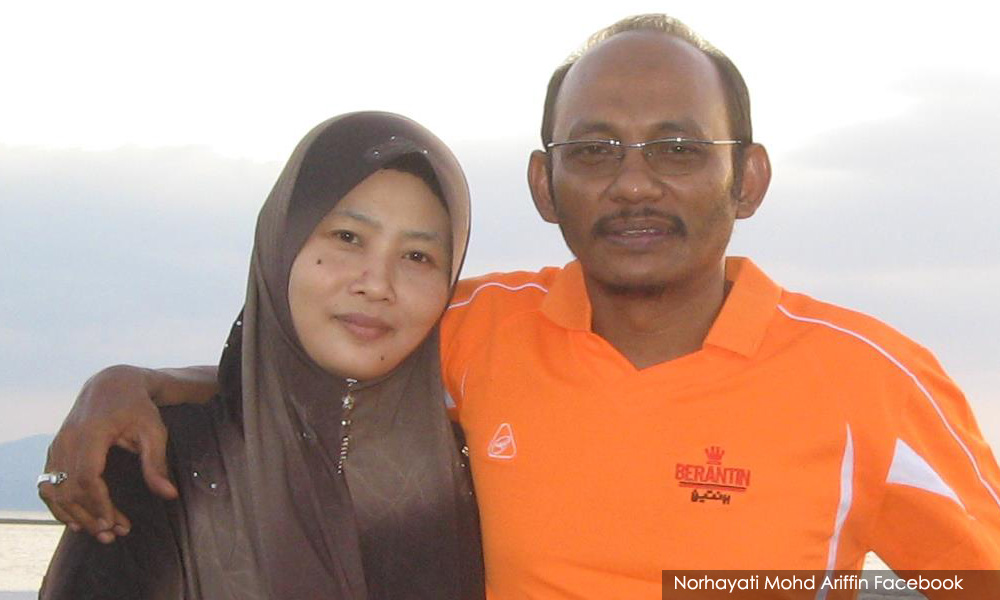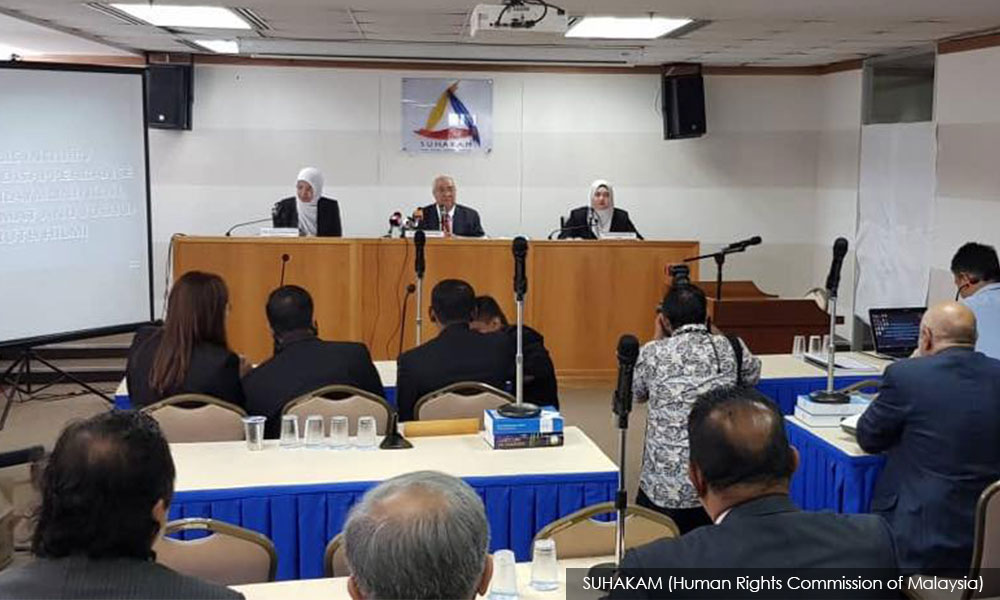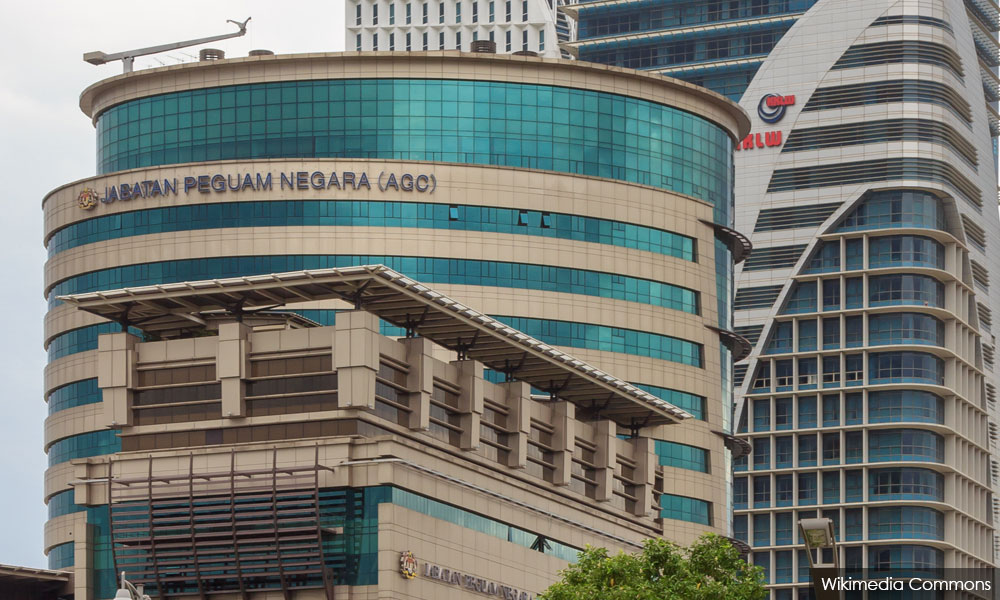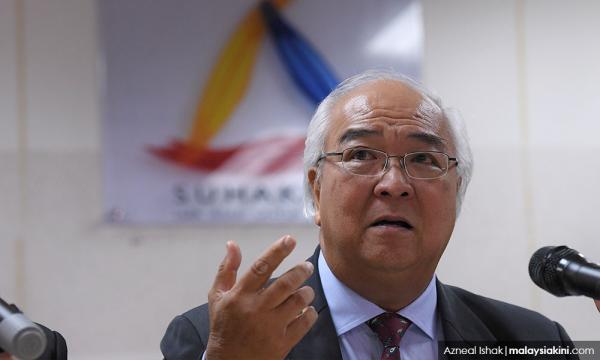COMMENT | Malaysians Against Death Penalty and Torture (Madpet) is disappointed with the course being taken by the Malaysian government in appointing yet another task force to investigate the enforced disappearances of Pastor Raymond Koh and activist Amri Che Mat.
This comes after the Malaysian National Human Rights Commission (Suhakam) had concluded public inquiries that determined that both Pastor Raymond Koh and Amri Che Mat were victims of enforced disappearance and that the alleged perpetrators are members of the police force, in particular from the Special Branch.
Suhakam’s commissioner, and also the chairperson of both inquiry panels, Mah Weng Kwai (photo, above), was reported saying that “It has to be an investigation, not another inquiry.”
Mah added: “When the police investigate, they would have to trace and dig further to see who are the relevant witnesses that can give credible evidence.”
He also said that there was no need for having another inquiry in order to speak to the same witnesses who spoke to the Suhakam panel.
Madpet agrees that there is no need for yet another inquiry to be conducted by the new task force, but what is needed now is an investigation with the objective of prosecution, or some other legal suit to ensure justice is done.
As such, the attorney-general/public prosecutor is maybe the best person to handle the task of further investigating to get more evidence, with the objective of prosecution.

Amri Che Mat, went missing on Nov 24, 2016.
The hearing of this public inquiry started on Jan 22, 2018, and ended on Nov 15, 2018. There were 27 days of hearing and the panel heard evidence from 24 witnesses.
Counsel for the family, officers for the police, officers for Suhakam and counsel from the Bar Council took part in the inquiry and also submitted before the panel before the final decision and the 101-page report of the panel, dated March 4, 2019, was handed down.
Pastor Raymond Koh, went missing since Feb 13, 2017
The hearing of this public inquiry started on Oct 19, 2017, and had to be stopped because on Jan 15, 2018, the police sent a letter stating that one Lam Chang Nam was arrested and charged in relation to Koh’s disappearance and, as such, Suhakam’s inquiry should not proceed as the law states that it cannot continue if the subject matter becomes a subject matter of any proceedings in court, in this case a criminal proceeding.

The Suhakam panel then heard submissions from all parties, including the police, and on May 16, 2018, decided that the criminal case was not the same subject matter of the inquiry, and the inquiry should proceed.
On Dec 7, 2018, the hearings concluded. There were 20 days of hearing, and evidence from 16 witnesses were recorded. The 95-page Inquiry Report and Decision was dated April 3, 2019.
Suhakam inquiry was comprehensive
A perusal of the Suhakam inquiry report, the number of days of hearing, the number of witnesses and the documentary evidence shows that the Suhakam inquiry was comprehensive, and as such there is no need for any other task force (or Commission of Inquiry) to investigate or inquire into this matter all over again.
It also helped that the chairperson of the Suhakam inquiries was a lawyer and a former Court of Appeal judge.
The time has come to refer these two cases of enforced disappearance to the attorney-general/public prosecutor to act.
Justice delayed is justice denied
It must be pointed out that the Suhakam commissioners are appointed by the Yang di-Pertuan Agong, and authorised by an Act of Parliament to conduct public inquiries.
The government’s response to set up yet another task force (as now formed) or another ‘commission of inquiry’ to look again at the disappearances of Koh and Amri may not only be unreasonable, but may also be disrespectful to the human rights commissioners appointed by the Agong.

Some may wonder whether this government may not be too happy that Suhakam decided that these were cases of enforced disappearance, that they implicate the government and the police, and this new task force may be an attempt to neutralise or overturn Suhakam’s earlier decisions.
Article 2 of International Convention for the Protection of All Persons from Enforced Disappearance states that "enforced disappearance" is considered to be the arrest, detention, abduction or any other form of deprivation of liberty by agents of the State or by persons or groups of persons acting with the authorisation, support or acquiescence of the State, followed by a refusal to acknowledge the deprivation of liberty or by concealment of the fate or whereabouts of the disappeared person, which place such a person outside the protection of the law.
One may also wonder whether the setting up of a task force now is just simply an attempt to delay justice. At the end of the day, if this new task force proceeds, that inquiry may take 10 to 15 months and at the end of the day, we may again get recommendations. The power to prosecute is with the attorney-general/public prosecutor.
Best for the AG to investigate
The proper cause of action would be for the attorney-general/public prosecutor to take the relevant action of conducting further investigation, if needed, with a view of prosecuting the guilty, or maybe even commencing legal suits to ensure justice is done. The attorney-general should be free to engage anyone to assist.
Given the fact that both Suhakam inquiries found that the perpetrators may be police officers from the Special Branch – it is best that the police do not take the lead in conducting further investigations or the gathering of evidence for the purpose of prosecuting police officers and/or others.

It is best that the attorney-general/public prosecutor be tasked to do this. They could also get the relevant assistance for further investigation and gathering of evidence from the police, or maybe even from some other enforcement agencies.
The relevant minister in the government can also direct the police to increase their efforts to find the missing Koh, Amri and others.
Madpet, therefore, calls upon the Malaysian government to:
- No longer delay justice and to let the attorney-general be tasked with investigating and gathering evidence with a view of prosecuting the guilty;
- Abandon the idea of another inquiry by the task force into the disappearance of Koh and Amri, and hand the matter to the relevant authority to prosecute;
- Get Suhakam, which now again has commissioners after not having any for the past two months, to immediately proceed with the outstanding public inquiry into the disappearance of Joshua Hilmy and Ruth Hilmy; and
- To immediately ratify the International Convention for the Protection of All Persons from Enforced Disappearance.
Justice should not be delayed for the families of Koh and Amri, and all those others who have “disappeared”.
MADPET or Malaysians Against Death Penalty and Torture is a movement for the abolition of the death penalty and torture.
The views expressed here are those of the author/contributor and do not necessarily represent the views of Malaysiakini.


